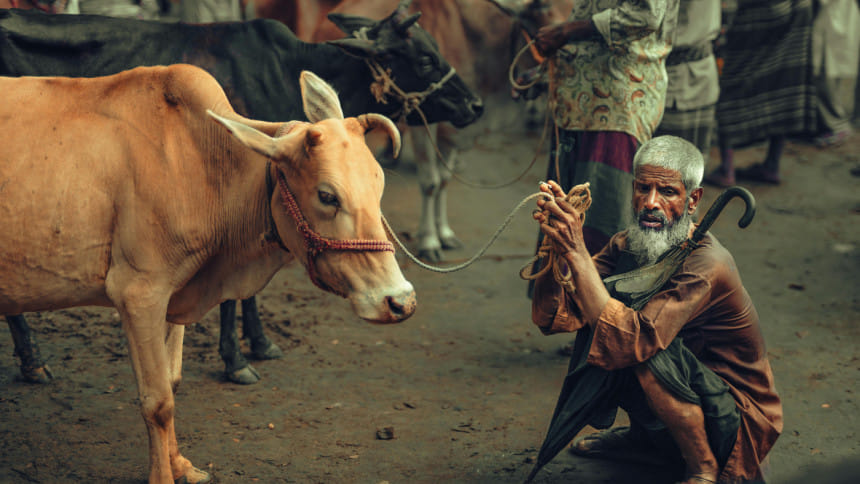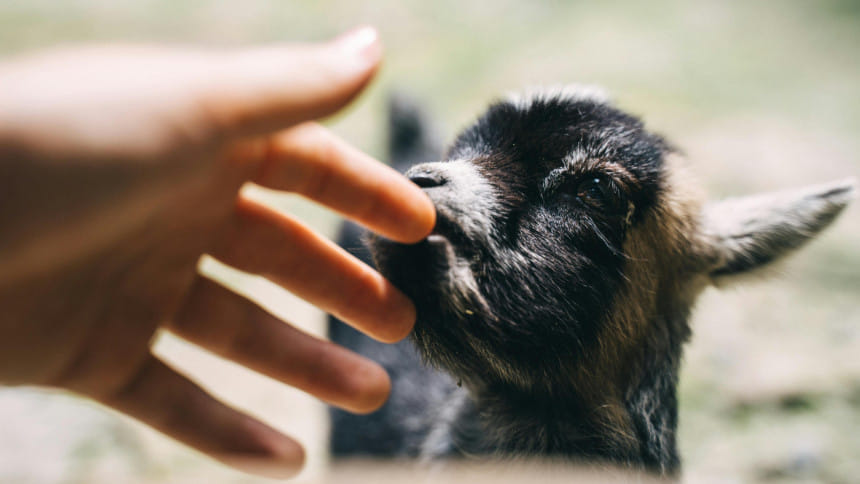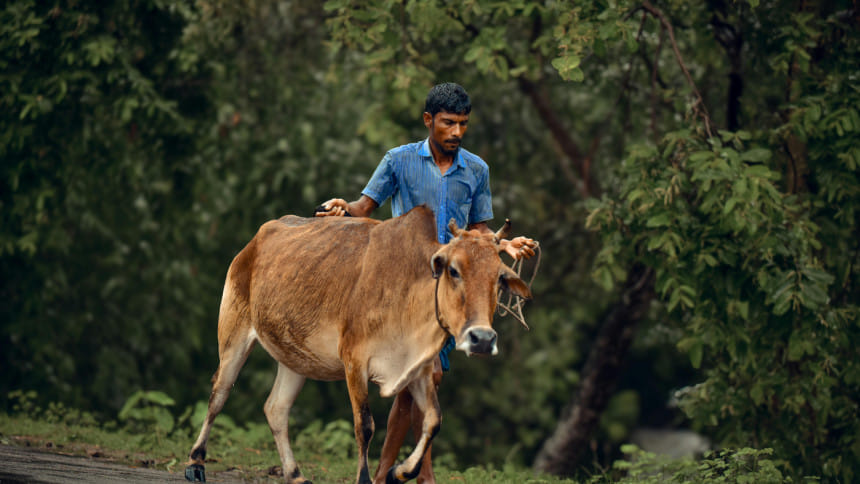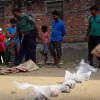Don't let your qurbani go to waste: Caring for your sacrificial animal

With Eid-ul-Azha approaching, thousands of cows, goats, and sheep are being brought into homes across the country. However, beyond the religious duty of Qurbani lies the crucial responsibility of ensuring proper care and humane treatment of these animals.
In Islam, the sacrifice of a sick or injured animal is not valid. This makes pre-sacrifice care not only a moral obligation but also a religious one, as Dr Md Tanvir Ul Alam, Associate Veterinary Officer at AniMedCare, notes, "Bringing an animal home means taking responsibility for its well-being. These animals deserve proper food, shelter, and medical attention, even if just for a few days."

Select responsibly, observe closely
Veterinarians stress that the first step to ethical Qurbani is choosing a healthy animal.
"Many animals are transported from distant places under stressful conditions. Germs often remain in incubation and manifest symptoms only after arrival," Dr Alam explains. Therefore, buyers should look out for signs of good health, which include alertness, active movement, and eagerness to eat or drink.
He advises that if an animal appears lethargic, avoids food, or has trouble standing, a veterinarian should be consulted immediately. "Even small injuries or discomfort during transportation can escalate. Neglecting these signs not only risks invalidating the Qurbani but also causes needless suffering," he adds.
Food and water: Understand the routine
One of the most common mistakes, Dr Alam notes, is disrupting the animal's feeding habits. "People often bring the animal home just days before Eid without asking what kind of food it's used to. As a result, the animal suffers from stress or digestive issues."
His advice? Provide grain feed like wheat bran and pre-mixed cattle feed twice a day, morning and afternoon. Add hay and, if available, grass.
"Always ensure a supply of clean drinking water. The stress of changing environments demands more hydration, and without it, animals may weaken rapidly," he warns.
Comfort and shelter: More than a convenience
"In Dhaka, animals are kept tied outside under the sun or in the rain. This is unacceptable," says Dr Alam. Animals should be kept in shaded, well-ventilated spaces, ideally with soft bedding – earth floors, cloth, or jute sacks.
"Standing for long hours in the market tires their limbs. Providing a soft resting place helps relieve pain and prevent injury," he explains.

Cleanliness is compassionate
"Feeding bowls must be cleaned before every use. Water should be free from sand and dirt," Dr Alam advises. He also stresses the importance of regularly removing faeces and urine from the animal's shelter: "Never let an animal lie on its own waste. It leads to infection and discomfort."
Ideally, shelters should be slightly sloped to facilitate easy drainage, and regular cleaning should be practised at least twice a day.
Animal behaviour and child safety
With animals brought into family settings, children naturally want to play with or feed them. However, Dr Alam cautions against unsupervised interaction: "Some animals, especially those newly relocated, can become aggressive or depressed. Children should approach only after the animal's behaviour is understood."
He suggests allowing children to feed from a distance, slowly building comfort and familiarity. "Recognising the animal's mood is key. No sudden gestures. Teach children empathy and caution," he adds.
On the day of sacrifice, ensure a humane end
The final moments of the animal should be handled with care. "Bathe the animal, give fresh water, and keep it calm," advises Dr Alam. Withholding food or water unnecessarily increases stress.
During casting, use soft ground and avoid rough handling. Most importantly, use a sharp knife to minimise pain. "A blunt blade prolongs suffering," he warns. Cutting should only begin after the animal is fully lifeless, in line with both ethical and Islamic principles.
As Eid-ul-Azha reminds us of sacrifice, it also calls us to embrace mercy. How we treat animals in our care – before, during, and after Qurbani – reflects not just our piety but our humanity. Let this year be a time not just of ritual fulfilment, but of renewed compassion, guided by the teachings of Islam and the science of care.

 For all latest news, follow The Daily Star's Google News channel.
For all latest news, follow The Daily Star's Google News channel. 








Comments